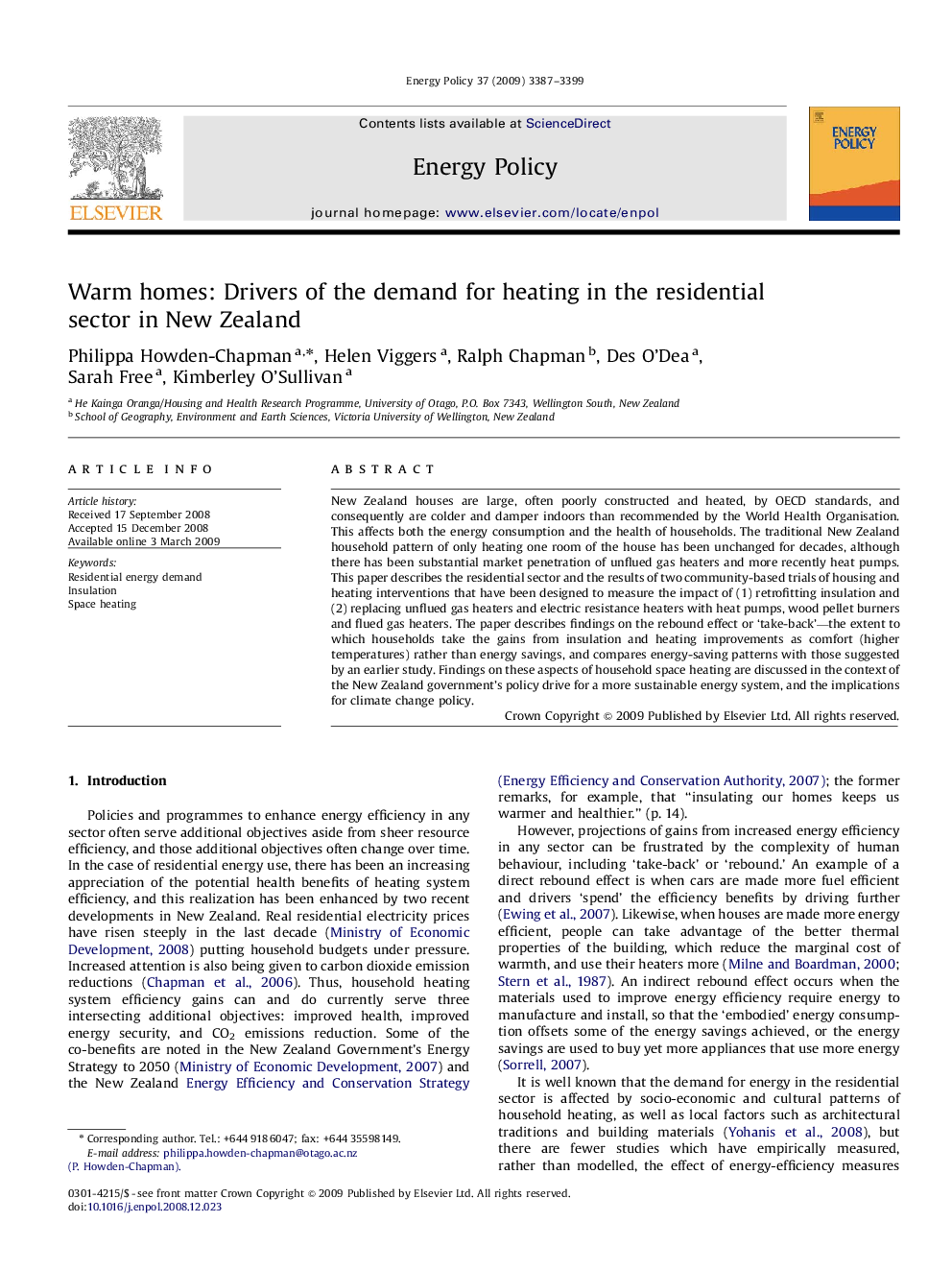| Article ID | Journal | Published Year | Pages | File Type |
|---|---|---|---|---|
| 996723 | Energy Policy | 2009 | 13 Pages |
New Zealand houses are large, often poorly constructed and heated, by OECD standards, and consequently are colder and damper indoors than recommended by the World Health Organisation. This affects both the energy consumption and the health of households. The traditional New Zealand household pattern of only heating one room of the house has been unchanged for decades, although there has been substantial market penetration of unflued gas heaters and more recently heat pumps. This paper describes the residential sector and the results of two community-based trials of housing and heating interventions that have been designed to measure the impact of (1) retrofitting insulation and (2) replacing unflued gas heaters and electric resistance heaters with heat pumps, wood pellet burners and flued gas heaters. The paper describes findings on the rebound effect or ‘take-back’—the extent to which households take the gains from insulation and heating improvements as comfort (higher temperatures) rather than energy savings, and compares energy-saving patterns with those suggested by an earlier study. Findings on these aspects of household space heating are discussed in the context of the New Zealand government's policy drive for a more sustainable energy system, and the implications for climate change policy.
